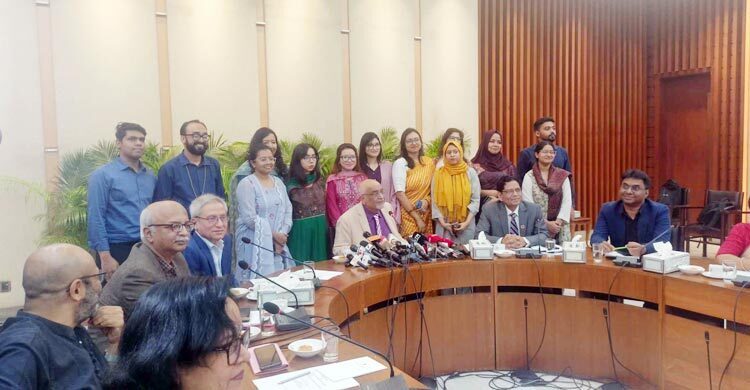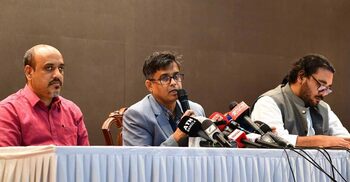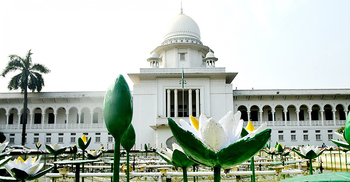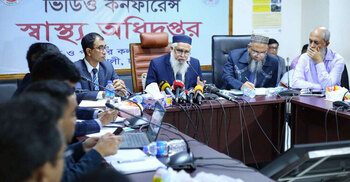White Paper committee unveils major corruption channels

The White Paper Committee identified a number of dominant channels of corruption including banking loan scams, misappropriation of loans and politically motivated unviable projects, appearing to be a wide-ranging and deep-rooted manifestation of corruption during the deposed Awami League regime.
The White Paper Committee head and Distinguished Fellow of the Centre for Policy Dialogue (CPD) Dr Debapriya Bhattacharya on Monday formally unveiled the report to the media exposing the dominant channels of corruption at the NEC conference room in the city's Sher-e-Bangla Nagar area. Other members of the committee were present.
The dominant channels are described below which includes banking loan scams, fraudulent practices in illusory bank loans, misappropriation of loans.
Bank Takeover: Forced takeover of ownership of banks with the help of state machinery.
Illicit financial outflows: Ill-gotten money is laundered out of the country in large volume.
Politically Motivated Unviable Projects: Resources are wasted on unviable projects, prolonging timelines and inflation costs.
Inflated Project Costs: Systematic cost overestimation to siphon funds.
Project Cost Escalation Post-Approval: Costs are artificially escalated after project approval to divert funds.
Non-Competitive Tender Processes: Cronyism and favouritism dominate procurement, excluding qualified bidders.
Unnecessary or Poorly Designed Projects: Resources are wasted due to weak feasibility studies, prolonging timelines and inflating costs.
Nepotism in Appointments: Project management, particularly Project Directors, is often appointed based on political connections rather than merit.
Illegal Land and Asset Acquisitions: Land and assets are seized or acquired through illegitimate means.
Misappropriation of Land Acquisition Funds: Politically weak landowners are coerced into unfair deals, and funds allocated for land acquisition are misused.
Awarding Overpriced Contracts: Contracts are often granted to politically connected contractors at inflated prices and given without competitive bidding.
Abuse of Project Resources: Misuse of vehicles, travel budgets, and other project resources for personal or political gain.
Bribery as a Standard Management Practice: Bribes are routinely exchanged to expedite processes or secure favours.
Misallocation of Public Funds: Funds intended for development are diverted to serve political and/or personal objectives by the leaders.
Tax Exemptions for Elites: Tax policies disproportionately benefit influential groups.
Distorted Supply Chains: Manipulated supply chains lead to unfair pricing and market inefficiencies.
Sharing Insider Information: Policy decisions are leaked to select groups for financial gain.
Collusive Corruption: Collaboration between public officials and private actors for mutual benefits.
Extortion-Based Corruption: Coercion is used to extract bribes or enforce unfair deals.
Monopolistic Corruption: Market conditions are manipulated to favour specific individuals or entities.
Pre-emptive Information Sharing Corruption: Early access to critical information is exploited for undue advantage.
Information Concealment Corruption: Withholding important information to mislead stakeholders.
Corruption by Inaction: Deliberate delays are used to create opportunities for rent- seeking.
Corruption for Career Advancement: Bribes and connections are leveraged to secure promotions or influential positions.
Commission-Sharing Corruption: High-level officials demand a share of commissions for approvals.
Corruption for Political Favour: Resources and decisions are manipulated to secure political allegiance or favour.
Legislative Manipulation Corruption: Laws and policies are tailored to serve vested interests.
The review of the White Paper puts the banking sector on top of the most corruption-ravaged sector, followed by physical infrastructure, and energy and power.
Information and Communication Technology (ICT) was also identified as one of the most corruption-affected sectors by its operational and technological novelty.
This non-exhaustive list of pervasive corrupt practices highlights the urgent need for systemic reforms and robust accountability mechanisms to restore governance integrity and economic resilience, the paper said.





